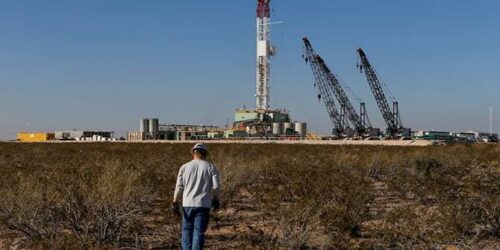Singapore, while not a domestic oil producer, has high stakes in this sector. The country is a global oil trading hub and a major global refining and petrochemicals center, accounting for 1.5 million barrels a day or 1.5 per cent of the global refining volume, and 25 million tonnes per annum or 1.2 per cent of the global petrochemicals capacity.
It also thrives on a large shipping industry and is one of the main shipping bunkering stations in the world, given its strategic location.
But that may change as the world transitions away from fossil fuels. There is little disagreement that burning them contributes to climate change and other adverse environmental effects.
The pandemic and other world events in 2020 have brought climate change and sustainability to the fore for businesses, governments and communities.
The oil and gas industry is similarly stepping up its response to climate change. For instance, The Oil and Gas Climate Initiative, led by a consortium of global industry players, has set aside US$1 billion to catalyse the shift to a low-carbon ecosystem.
Institutional investors are scrutinising companies’ actions and resilience towards climate change. Public policies will increasingly be oriented toward reducing greenhouse gas emissions and fossil fuels’ share in the energy mix.
In an ideal world, we would flip a switch and the energy ecosystem would be transformed. Electric vehicles would instantly replace those powered by internal combustion engines. Electricity would be generated by solar panels and windmills.
However, the reality is it takes time for consumer adoption, technology, regulations and infrastructure to come together. Oil and gas players must tackle the clean energy transition head-on and confront the “sunset” outlook for the sector.
Major oil companies are moving forward with large-scale complex projects with the most innovative technologies. They possess operational experience in the most challenging environments and have the ability to attract capital.
The energy transition is well underway as oil and gas companies decarbonise and invest in new technologies.
Major European oil companies such as BP, Shell and Eni have already announced plans to invest in the energy transition in one way or another; in renewables, carbon capture, utilisation and storage, hydrogen and buying green electricity.
Most oil majors are investing in solar energy, a key source of future energy for Asia-Pacific. Examples include BP’s investment in the Lightsource Joint Venture; Eni’s recent commissioning of a 31MW solar power plant in Italy and similar projects in Australia, Tunisia, Pakistan and Kazakhstan.
Shell also has five solar projects and plans to build a 120MW solar plant in Australia, which will help reduce its carbon emissions by 300,000 tonnes per year.






